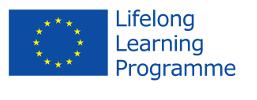Lithuania has high levels of intrapreneurs (employees engaged in entrepreneurial activity) and young entrepreneurs. People are confident in their own abilities to start a business; however, they are less positive about the opportunities available to do so. Their creativity is constrained by fear of failure.
The level of necessity-driven entrepreneurship is decreasing as its opportunity-driven equivalent becomes more common. Women are more likely than men to start a business to pursue an opportunity.
Lithuania’s entrepreneurs need to pay more attention to human resource strategies and to growing their businesses, in terms of number of employees.
The average entrepreneur in Lithuania is young, educated and innovative; creating jobs, managing many resources, with a highly internationalized business. However, they also have a strong fear of failure.
Enablers and Constraints
Availability of finance, education (primary and secondary), commercial infrastructure, internal market dynamics, physical infrastructure and cultural and social norms are factors that positively affect the environment for entrepreneurship in Lithuania.
However, governmental policies and programs, R&D transfer, and internal market openness inhibit entrepreneurship in Lithuania.
Enterprise Lithuania
Enterprise Lithuania is the most innovative and efficient government agency in Lithuania. Its mission is to help businesses create measurable added value.
Trends Over Time
Although fear of failure is relatively high in Lithuania, people tend to create businesses in pursuit of a good opportunity, rather than having no other option for work. Necessity-driven entrepreneurs are leaving business to choose another career.
Challenges for the Future
- Sustainability – combating business discontinuance
- Growth – enabling firms to expand and develop
- Social Trust – improving how society views entrepreneurs
- Limited market – increasing internationalization in a small country
- Creativity – in highly competitive markets, Lithuania’s entrepreneurs need to be more creative, bringing new products and services to the table and improving the marketing of these products
The GEM Lithuania National Team is based at the International Business School at Vilnius University.
Key Indicators
- 12.4% of the adult population in Lithuania are engaged in entrepreneurship, while 8.3% already own / manage an established business
- 29% of adults in Lithuania see good opportunities to start a business; 42% of these would be prevented from doing so by fear of failure
- In Lithuania, for every 10 adult males engaged in entrepreneurship there are 4 females
- 55% of entrepreneurs in Lithuania start a business to pursue an opportunity and increase their income or independence; 23% do so because they have no other option for work






